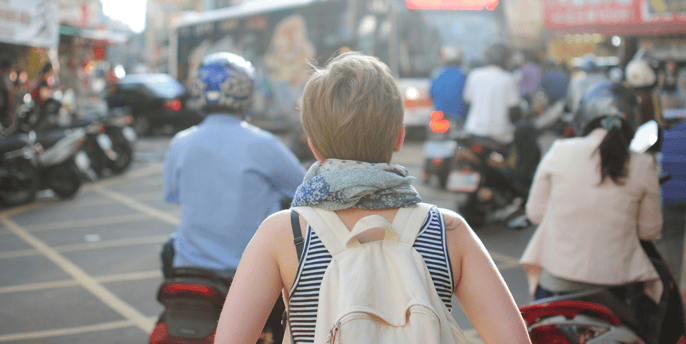Solo Travel Safety Tips
Solo Travel Safety Tips let’s face it, in today’s world we can’t pretend that it is completely safe out there and so it's very important to prioritize safety.


Traveling alone can be a wonderful and enriching experience, but let’s face it, in today’s world we can’t pretend that it is completely safe out there and so it's important to prioritize safety. There are places that used to be safe but with the fast changing world, things change.
Here are some essential tips for traveling alone:
1. Research your destination: Before you go, learn about the local customs, culture, laws, and potential safety concerns of the place you're visiting. Also for all the destinations, check to see if your government has a travel advisory for where you are visiting. You might be surprised.
2. Share your itinerary: Inform a trusted friend or family member about your travel plans, including where you'll be staying and how you can be reached. Check in with them regularly if possible. One of the most important tips that I can recommend and very doable with today’s technology. Get an international SIM Card so that you are available to your family and friends to check up on you at all times or for you to call for help if you are lost or in a dangerous situation.
3. Stay connected: Keep your phone charged and have a way to access the internet if needed. Consider purchasing a local SIM card or using international roaming services. If your phone is not charged regularly then obviously it won't matter if you have a SIM card. Please take the time to plug in your phone at every opportunity.
4. Use reputable accommodation: Book accommodations in safe and well-reviewed areas. Read reviews from other travelers to gauge the safety and reliability of your lodging choices.
We are all looking for deals when traveling but safety is not negotiable. Stay in safe populated areas and if traveling for business, ask your customers to recommend a hotel that is close to their offices.
5. Keep your valuables secure: Avoid displaying large sums of money or valuable items in public. Just use debit and credit cards and you can keep up to 50 dollars in cash in your pocket. Don't keep your wallet in your back pocket, some countries have professional pickpockets.
6. Be aware of your surroundings: Stay vigilant in crowded or unfamiliar places. Trust your instincts—if something doesn't feel right, remove yourself from the situation. The best thing to do is check out the place online before even going there. Stay away from high crime areas.
7. Learn basic phrases: If traveling to a foreign country, learn a few key phrases in the local language, such as "help," "police," or "emergency," to communicate in case of need. Also a good idea would be to download a translation app on your phone, there are many available in the app stores.
8. Use reliable transportation: Opt for licensed taxis or reputable ride-sharing services. Do Not Accept Rides From Strangers. Verify the identity of drivers and always share your location with someone you trust.
9. Limit alcohol consumption: Excessive drinking can impair judgment and make you more vulnerable. Drink responsibly and be cautious of accepting drinks from strangers.
10. Emergency contacts: Keep a list of emergency contacts handy, including local emergency numbers and the nearest embassy or consulate of your home country.
11. Stay informed: Monitor local news and be aware of any potential political or social unrest in the area you're visiting. Adjust your plans accordingly if necessary. If you need to take an earlier flight to leave the city, do it.
12. Trust your instincts: Your intuition is a valuable tool. If you feel uncomfortable or unsafe, don't hesitate to seek help or remove yourself from the situation. Basically, get the heck out of there!
If I am making traveling solo a bleak experience, it is not my intention. By following these safety tips and staying vigilant, you can enjoy a safe and memorable solo travel experience.


